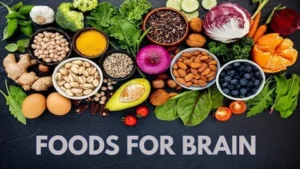Your diet is more than just fuel—it’s your foundation for energy, mood, and overall vitality. Every bite you take influences how you feel, think, and perform. The Energy Diet isn’t about restriction or calorie counting—it’s about eating the right foods that nourish your body and uplift your spirit. In this ultimate guide, we reveal the 10 most effective ways to eat for sustained energy and emotional well-being.

1. Begin Your Day with an Energy-Balancing Breakfast
Skipping breakfast is one of the fastest ways to sabotage your energy levels. A balanced breakfast jumpstarts your metabolism and stabilizes blood sugar.
-
Combine complex carbs (like oats or whole-grain toast) with protein (like eggs or yogurt) and healthy fats (like avocado or nuts).
-
Avoid sugary cereals and pastries that cause mid-morning crashes.
A nutrient-rich breakfast sets the tone for steady energy and a positive mindset all day long.
2. Eat Regularly to Maintain Steady Energy
Long gaps between meals can lead to blood sugar dips, irritability, and fatigue. Instead, aim to eat every 3–4 hours to keep your energy balanced.
-
Include small, nutritious snacks like trail mix, fruit with nut butter, or Greek yogurt.
-
Focus on portion control—just enough to keep your metabolism humming.
Consistent fueling ensures both body and brain stay alert and energized.
3. Prioritize Complex Carbohydrates for Lasting Fuel
Carbohydrates are your body’s main energy source—but not all carbs are equal. Choose complex carbohydrates that release energy slowly rather than quick-burning refined sugars.
-
Opt for brown rice, quinoa, sweet potatoes, and whole grains.
-
Limit white bread, pasta, and pastries.
Complex carbs keep you fuller for longer and prevent the energy highs and lows that affect your mood.
4. Power Up with Protein at Every Meal
Protein isn’t just for building muscle—it’s essential for neurotransmitter production that regulates mood and motivation.
-
Include lean meats, fish, eggs, beans, and legumes.
-
For plant-based diets, try tofu, tempeh, and lentils.
Protein supports focus, stamina, and a calm, positive mindset by balancing your blood sugar levels and preventing fatigue.
5. Load Up on Omega-3 Fatty Acids for a Better Mood
Healthy fats, especially omega-3 fatty acids, are vital for brain health and emotional stability. Studies show that omega-3s can help combat anxiety and depression.
-
Eat salmon, mackerel, chia seeds, flaxseeds, and walnuts regularly.
-
Use extra virgin olive oil as your primary cooking fat.
These fats enhance brain function, promote happiness, and reduce inflammation that drains energy.
6. Stay Hydrated to Keep Energy Flowing
Dehydration often masquerades as fatigue or irritability. Since your body is about 60% water, proper hydration is crucial for maintaining energy and mental clarity.
-
Drink at least 8–10 glasses of water daily.
-
Add slices of lemon, cucumber, or mint for flavor and nutrients.
-
Limit caffeine and alcohol, which can dehydrate you.
Staying hydrated helps your body process nutrients efficiently and keeps your mind sharp.
7. Fill Your Plate with Colorful Fruits and Vegetables
Vibrant fruits and vegetables are loaded with antioxidants, vitamins, and minerals that protect against fatigue and improve your mood.
-
Eat a rainbow: leafy greens, orange carrots, red peppers, purple berries, and yellow squash.
-
The more color on your plate, the broader your nutrient intake.
Antioxidants neutralize stress-causing free radicals, keeping your cells and mood in peak condition.
8. Cut Back on Sugar and Processed Foods
While sugar may give a temporary energy surge, it’s always followed by a crash. Processed foods loaded with additives and refined sugars drain energy and impair mood.
-
Replace sweets with natural alternatives like fruit, dates, or dark chocolate (70% cacao or higher).
-
Swap packaged snacks for homemade energy bites or fresh produce.
Eating clean, whole foods helps maintain stable blood sugar levels, reducing mood swings and fatigue.
9. Support Gut Health for Emotional Balance
A healthy gut equals a happy mind. Your gut produces nearly 90% of the body’s serotonin, the hormone responsible for mood regulation.
-
Include probiotic foods like yogurt, kimchi, kefir, and sauerkraut.
-
Add prebiotic-rich foods such as bananas, onions, and garlic to feed beneficial gut bacteria.
By supporting gut health, you naturally boost your mood, energy, and overall vitality.
10. Practice Mindful Eating for Better Energy Awareness
How you eat matters just as much as what you eat. Mindful eating encourages you to slow down, savor your food, and listen to your body’s signals.
-
Avoid eating while distracted or rushed.
-
Chew thoroughly and appreciate flavors and textures.
-
Stop when you feel satisfied, not stuffed.
This simple habit enhances digestion, prevents overeating, and fosters a deeper connection to your food and energy.
Bonus Tip: Combine Good Nutrition with Active Living
Food is the foundation, but movement, rest, and mental wellness complete the energy equation.
-
Incorporate daily exercise to improve circulation and release endorphins.
-
Prioritize 7–9 hours of sleep for full recovery.
-
Manage stress with relaxation techniques like yoga, deep breathing, or journaling.
A balanced lifestyle amplifies the effects of your Energy Diet, giving you the stamina and positivity to thrive.
Conclusion: Eat Well, Live Vibrantly
The path to a better mood and lasting vitality begins on your plate. By following these 10 Energy Diet principles, you’ll nourish your body, empower your mind, and cultivate genuine, sustainable energy.
Every meal becomes a step toward a brighter mood, sharper focus, and a more vibrant life.